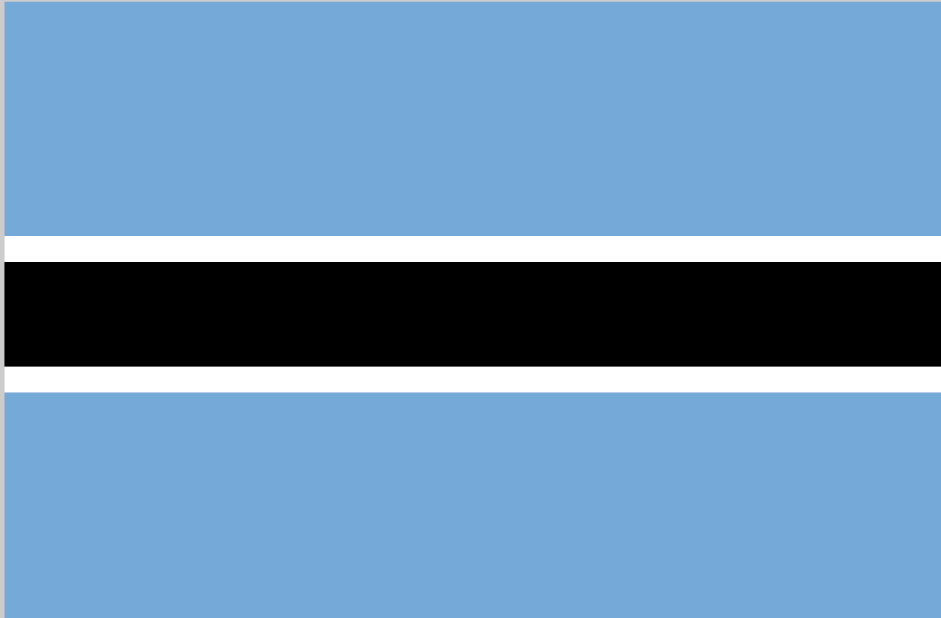
Sustainability Efforts
Country: Botswana
Explore sustainability efforts in Botswana. The United States Environmental Protection Agency (“EPA”) said it well when they state:
“Sustainability is based on a simple principle: Everything that we need for our survival and well-being depends, either directly or indirectly, on our natural environment. To pursue sustainability is to create and maintain the conditions under which humans and nature can exist in productive harmony to support present and future generations.”
About Botswana
Botswana, a landlocked country in Southern Africa, is renowned for its stable democracy, robust economy, and diverse wildlife. Home to the Kalahari Desert and Okavango Delta, Botswana hosts numerous animal species, offering remarkable safari experiences. The economy primarily relies on diamond mining, which contributes significantly to its high per capita income relative to other African countries. Despite economic strides, challenges like HIV/AIDS and unemployment persist. Tswana culture, evident in music, dance, and language, adds richness to the nation’s character. Sustainability efforts in Botswana will enhance the country’s future.
Sustainability Efforts
Toggle each button below to “open” and “close” the presented data.

Poverty: In Botswana, concerted efforts have been made to reduce poverty. The government has implemented social protection programs such as Ipelegeng, which provides short-term public works employment for vulnerable households. According to World Bank data, the poverty rate has decreased from 30.6% in 2002/2003 to 16.3% in 2015/2016.

Hunger: Efforts to combat hunger in Botswana are primarily channeled through the National Food Strategy. The government provides food rations to vulnerable groups, including orphans and those living in remote areas. In addition, agricultural policies are in place to boost local food production and reduce dependency on food imports.

Healthcare: Botswana has a well-established healthcare system, with one of the highest health expenditures per capita in Africa. The government has made significant strides in combating HIV/AIDS, reducing the prevalence rate from around 26% in 2000 to around 20% in 2020, according to UNAIDS.

Education: Botswana has achieved near-universal primary education and has made strides in improving the quality of education. The government spends a significant portion of its budget on education and has implemented policies to improve teacher training and curriculum development.

Gender Equality: Gender equality is a key focus in Botswana, with policies in place to promote women's participation in politics and the economy. The revised National Policy on Gender and Development (2015) provides a framework for achieving gender equality and women's empowerment.

Clean Water Sanitation: Access to clean water and sanitation is high in Botswana, with the World Health Organization reporting over 80% of the population having access to improved water sources and sanitation facilities. However, challenges remain in rural areas, and the government is implementing measures to extend services to these regions.

Affordable Clean Energy: Botswana has abundant solar resources and is investing in renewable energy to diversify its energy mix, which is largely dependent on imported electricity and local coal. The Botswana Power Corporation has initiated projects to harness solar power for electricity.

Economic Growth: Botswana has experienced steady economic growth over the past few decades, largely driven by diamond mining. The government is implementing economic diversification strategies, with a focus on sectors such as tourism and manufacturing.

Industry Innovation: The Botswana Innovation Hub, established by the government, aims to foster technology-based innovation and entrepreneurship. It offers facilities and support services for research and development, start-ups, and global corporations.

Reduced Inequalities: While Botswana has achieved significant economic growth, income inequality remains high. The government has implemented social protection programs and is working to promote job creation and economic diversification to address this issue.

Sustainable Cities: The government is implementing sustainable urban development strategies, with a focus on public transportation, waste management, and energy efficiency. The city of Gaborone, for instance, is implementing a waste management strategy that includes recycling and composting.

Responsible Consumption and Production: Botswana is taking steps to promote responsible consumption and production, such as implementing waste management strategies and promoting conservation agriculture.

Climate Action: Botswana is vulnerable to climate change, particularly in terms of water scarcity and agricultural productivity. The government has developed the National Climate Change Strategy and Action Plan, which outlines mitigation and adaptation measures.

Aquatic Environment: The Department of Water Affairs is responsible for managing Botswana's water resources. Efforts are focused on improving water conservation, protecting water quality, and promoting sustainable use.

Natural Environment: Botswana is known for its wildlife conservation efforts. It has established a network of protected areas and has banned commercial hunting to protect biodiversity.

Peace and Justice Institutions: Botswana is renowned for its stable democracy and strong rule of law. The government has implemented measures to strengthen its judicial institutions and promote transparency and accountability.

Partnerships for the Goals: Botswana actively collaborates with international partners, including UN agencies, to achieve the Sustainable Development Goals. It participates in international forums and regional initiatives on issues ranging from climate change to sustainable development.



